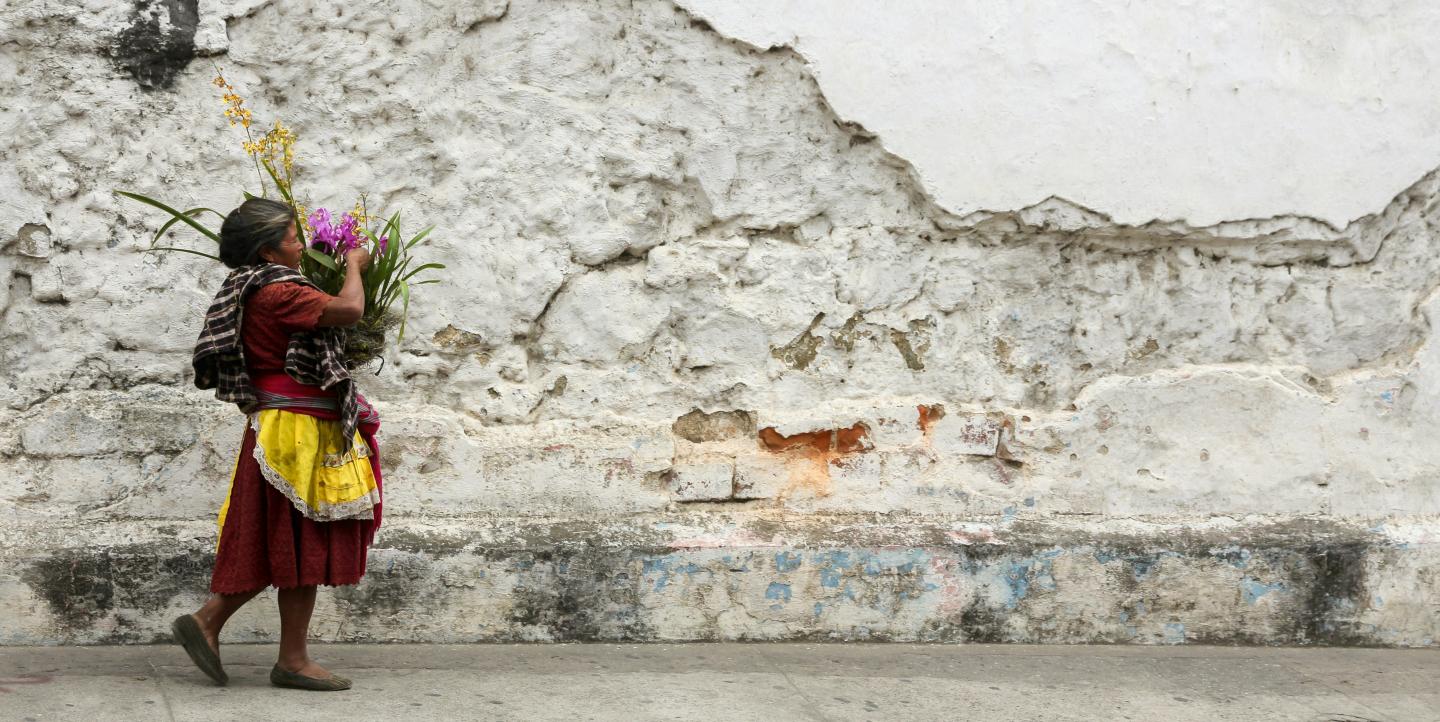Communicators, journalists and storytellers working in Indigenous territories of Latin America marked the last two World Press Freedom Days by penning manifestos calling attention to realities that affect their right to free expression.
They work in the midst of an armed conflict and report on struggles for land, violation of human rights, drug trafficking, poverty, corruption, deforestation and other issues that often afflict these areas.
“The lives of communicators are at risk because we live and narrate from and with the territories, which is why we are not oblivious to their realities and consequences,” reads the first manifesto, published in May 3, 2022 by Red Tejiendo Historias, an intercultural journalism community led by Colombian media outlet Agenda Propia.
Now, the group of Indigenous and non-Indigenous communicators and journalists behind these messages to the world is taking action by creating a security protocol to help themselves and their colleagues.
“We expect better conditions of harmony to do more journalism respecting the narratives of the territories, more access to information, more recognition of the work of local storytellers, whether Indigenous or not,” Edilma Prada, journalist and founder of Agenda Propia, told LatAm Journalism Review (LJR).
Demands for safety and security
Red Tejiendo Historias (Story Weaving Network) is a collaborative intercultural journalism community made up of around 400 communicators and journalists from 17 different Latin American countries.
The network was launched in Colombia in 2019 and focuses on promoting narratives about Indigenous peoples of Latin America and making their realities visible through the method of intercultural cooperative journalism and the co-creation of stories, according to Prada.
Some of its objectives are to facilitate communication channels, carry out journalistic training and to promote editorial spaces with communities and leaders of Indigenous peoples.
The manifestos “#LaPalabraEnRiesgo: Voces del territorio por la vida” (Word at Risk: Voices of the territory for life), written in May 2022, and “#LaPalabraEnRiesgo: Comunicamos para sanar la memoria” (Word at Risk: We communicate to heal memory), written in May 2023, are declarations created by members of the network. They explain the challenges faced by journalists in Latin America when it comes to telling stories in Indigenous communities.
“From the two manifestos we have understood that there is a lack of security and physical protection conditions for journalists who cover stories from Indigenous territories,” Prada said.
According to network member Cindy Amalec Laulate Castillo, an Indigenous communicator of the Tikuna-Magüta people in Colombia, the lack of freedom of expression and guarantees for security are two of the most important points of the manifesto.
Protecting freedom of expression
One of the things that set apart the manifestos, which are the basis for the security protocol, is that they consider not only the safety of communicators and journalists, but also the security of the communities and the territory they report on.
Prada said that the protocol will consider the territory and sacred places, in addition to the security of living sources. This refers to the Indigenous leaders, grandmothers, wise men and midwives in the territories since they are the majority of the sources in their stories.
“That is also part of security, of protecting the territory, so they are elements that must be considered,” Prada said.
Prada said the protocol will be the first of its kind as there is nothing like it for intercultural journalists reporting Indigenous stories.
“We reviewed the protocols of various advocacy and press freedom organizations, and none of them respond to this intercultural condition,” the journalist said.
Although the process of creating a security protocol is just beginning, Prada said that discussion spaces have already been held around this topic with members of the network. In addition, she also said that professional consultancies have been carried out with the Deutsche Welle Academy, media experts and promoters of freedom of expression.
For Laulate, the creation of the protocol is one more step in vindicating the rights of Indigenous communicators and the right to freedom of expression.
“It is necessary to make visible what the community, the organization, the territory, the core as such, really have, to be able to say: we are also here as Indigenous and non-indigenous communicators, vindicating the rights of Indigenous peoples,” she said.
This article was originally published on LatAm Journalism Review and republished on IJNet with permission.
Photo by Scott Umstattd on Unsplash.

